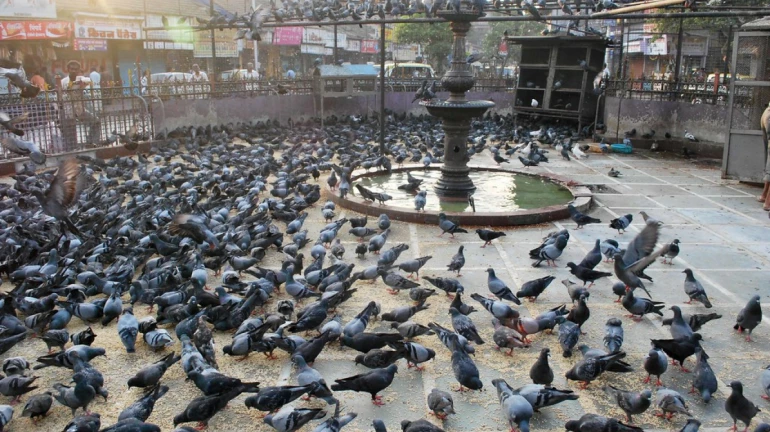
A sweeping initiative aimed at addressing public health concerns was put into motion by the Brihanmumbai Municipal Corporation (BMC), with action being taken against unauthorized structures at the Dadar kabutarkhana. The enforcement followed a directive issued by Industries Minister Uday Samant, under which all 51 pigeon feeding centers in the city had been marked for closure.
On Friday, encroachments around the traffic island in Dadar were dismantled by municipal workers. A plastic shed and wire netting were removed, and sacks of bird feed were cleared. However, within hours of the cleanup, feeders had returned and pigeons were again seen congregating at the site.
The action was confirmed by civic officials, who clarified that only illegal portions of the site had been removed. The heritage-status fountain located at the center was not disturbed. Officials emphasized that stopping the practice of pigeon feeding posed a significant challenge due to its emotional and religious undertones. Public health education initiatives have been scheduled by the BMC’s health department. According to authorities, the unchecked feeding of pigeons has been linked to the spread of interstitial lung disease (ILD), a progressive illness that damages lung tissue and hampers breathing permanently.
Medical experts have echoed these concerns that long-term exposure to pigeon droppings could result in hypersensitivity pneumonitis, commonly referred to as ‘pigeon breeder’s lung.’ Individuals with weakened immune systems were said to be at further risk from fungal infections. Support for the civic initiative has been expressed by several residents and citizen groups. Respiratory ailments, eye infections, and frequent traffic congestion were cited by residents as persistent issues stemming from pigeon feeding in the area. The activity was described as a public health hazard rather than a benevolent tradition.
However, the decision has not gone unchallenged. Trustees and community members associated with the kabutarkhana have voiced objections. They stated that the fence had been installed to protect pigeons from road traffic and maintained that the location was valued by visitors from across the city. It was argued that actions affecting long-standing traditions should not be driven solely by isolated complaints. As the debate continues, enforcement efforts are expected to be intensified, and the long-term sustainability of pigeon feeding practices in Mumbai remains uncertain.





